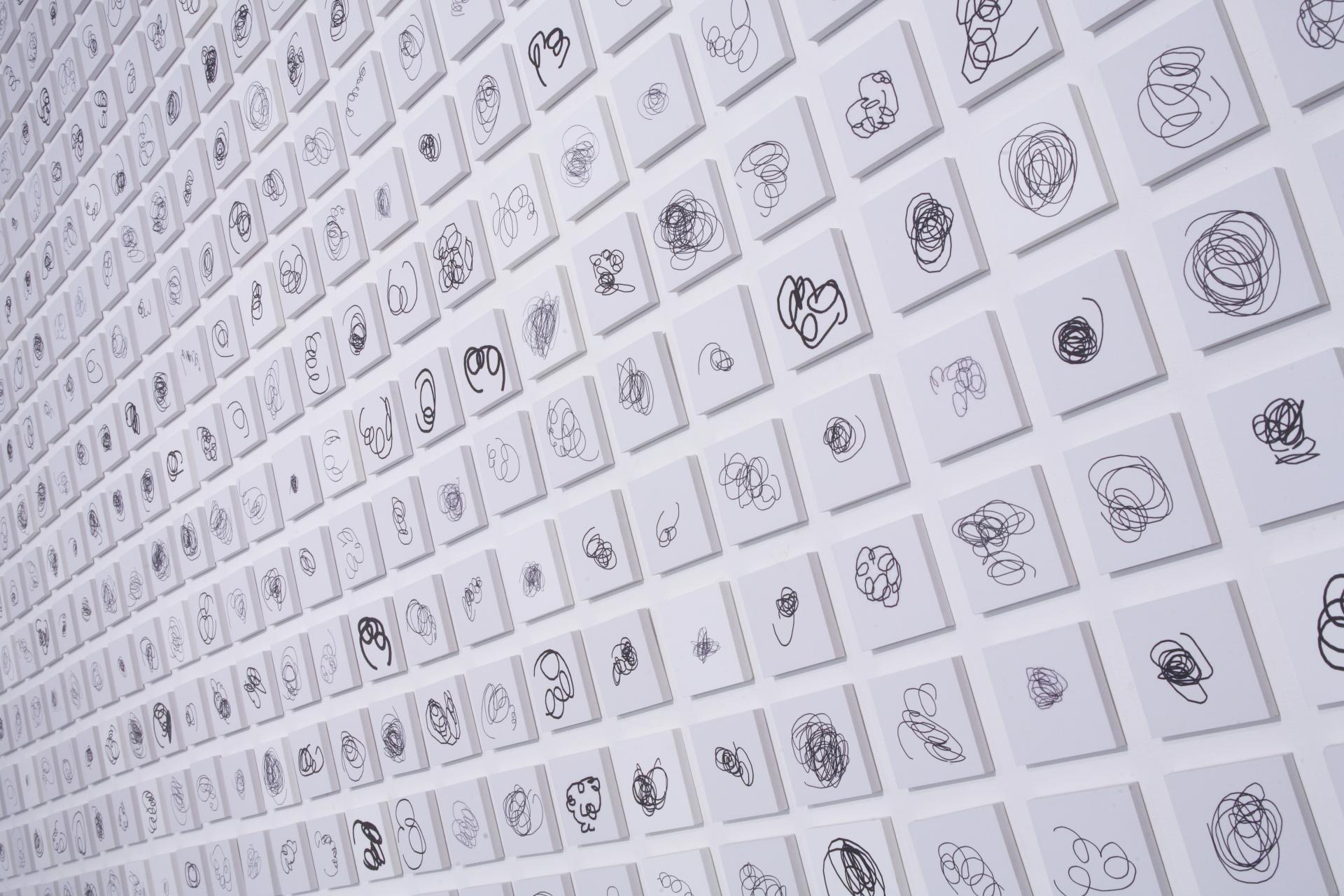
With the art things are just like with the money: the increasing overall quantity leads to a devaluation of each particular unit. The greater the number of artistic forms and their combinations, the lower their ability to convey a message. The growing masses of viewers and buyers of contemporary art do not testify to its higher quality, it just proves the success of the PR technologies in attracting public attention to it. The art offers the viewers less and less, while taking more and more from them.
The participants of the project propose their own recipe for dealing with this crisis: the most severe economy of visual means. The main principle here is “the simpler, the better”. Alexei Buldakov writes texts and then animates them in a way that they become unreadable. Alexandra Galkina monotonously shades huge sheets of Whatman paper until her highlighter runs out of paint, then takes another highlighter and turns to the next one. David Ter-Oganian dispassionately draws one spiral after another with a computer mouse, saving each of them as a separate file. They all methodically minimize their means of expression, replacing the twin principles of variety and originality with the expressiveness of naked elementary technique. The surface, the stroke, the movement of the line, the line of an unreadable text... A sort of fundamentally incomplete quantitative growth instead of the quality of compositional completeness... Collapse of pre-programmed associations, comparisons, imitations, relationships... All these means are intended to help achieve a breakthrough into the utopia of the virgin meaning, to try once again to regain freedom from the dead language of the modernity, to get beyond the culture.
The title of the exhibition, “The Good, the Bad and the Ugly”, looks just like one more creation of its participants. It cuts short the associations with the classic film by Sergio Leone, as if it never existed, attracting the viewer’s attention to the obvious fact of recapitulation of words which immediately become casual. The bicycle has not yet been invented, the potential freedom of the creative act is shared with every member of the audience. There is no past, and the future has not yet been designed.
Vladimir Levashov